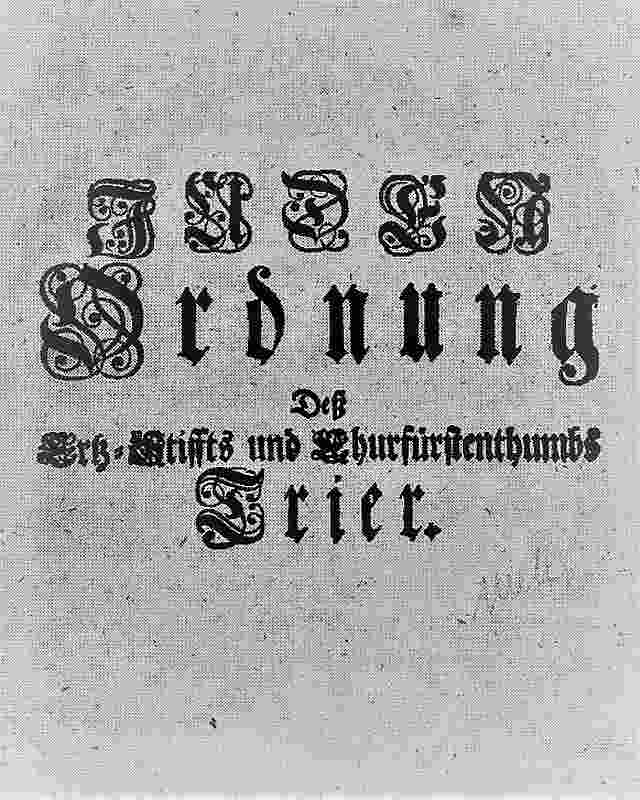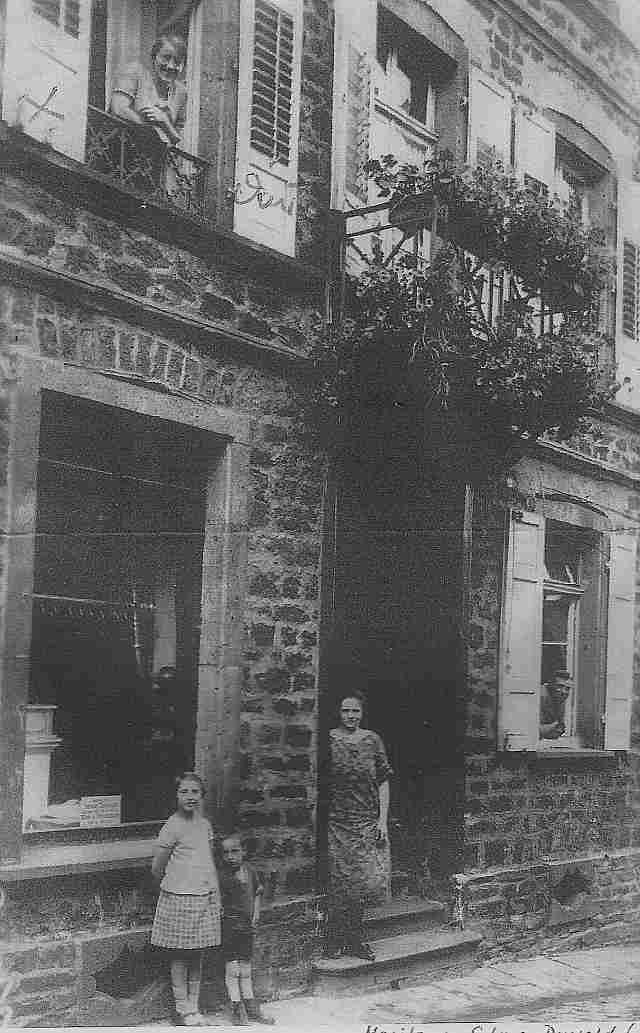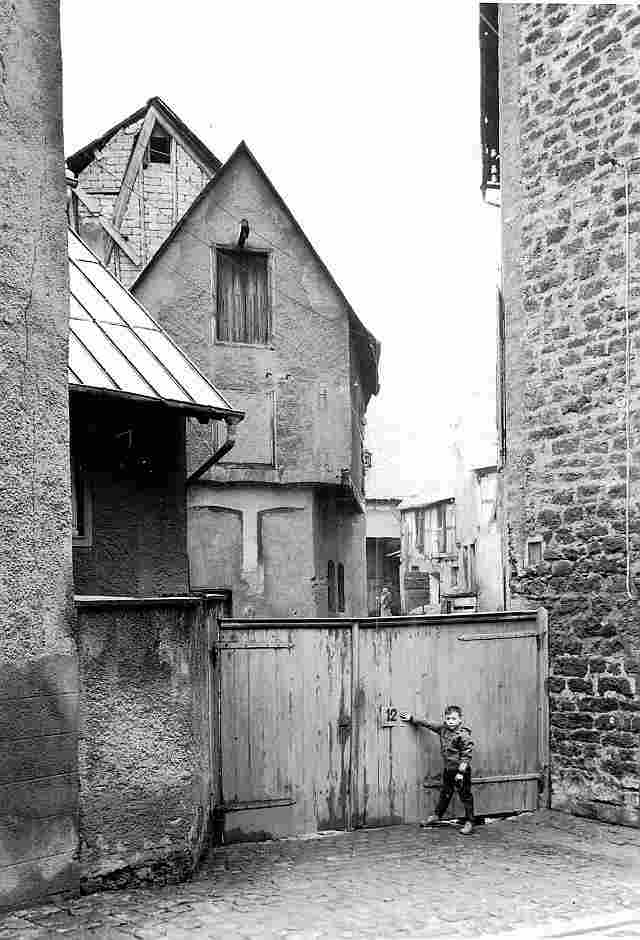27. Jewish Prayer Room
Purchased in 1671
Untill 1886 this house incorporated
the Jewish Prayer Room. After
1900 David Diewald opened a
butcher´s shop here.
A Jewish person, called “Koppel” was able to purchase the house in 1671. Since then, the Jewish people of the city had a prayer room in this house until 1886. After 1900, David Diewald opened a butcher’s shop, which was continued by his son, Moritz, until July 1937. Following the order of the district administrator, he had to close the butchery due to alleged hygiene deficiencies. The entire family Diewald fell victim to the holocaust: Moritz in Dachau, his wife, Selma, in Auschwitz, the daughter, Hilde, at an unknown location, the son-in-law, Herbert, in Auschwitz, and the son, Egon, died in Ober-Ramstadt.
The house we are standing in front of has been Jewish property since 1671. The prayer hall of the Jewish community in the town was located here until 1886.

Its present appearance is the result of alterations and extensions to the original building by David Diewald (1845-1922), who acquired the property in 1910. According to a survey of existing Jewish prayer rooms in the district of Mayen from 1846, there was a 50 m2 room in the old building that had room for 60 men; in front of it in the hallway there could be 30 women.
The prayer room in the house at Bornstraße 3 is the first precise indication of the communal life of the Jews in Münstermaifeld. We know from mentions in property and credit transactions that there had already been a synagogue in 1323. There is a reference to a cemetery from 1409. A particularly terrible but also reliable indication of a clearly earlier existence of a Jewish community is the evidence of its extermination on 17 July 1287 in the wake of the pogroms of "Good Werner". 90 men, women, children from twenty families were murdered. Among them 8 Talmud students. The large number of murdered Jews and the students suggest a community with a rabbi as early as the 13th century.
The fate of the Jews in Münstermaifeld followed that of the Jewish communities in the Electorate of Trier. At the beginning of the 15th century, the sovereigns put an end to the uncontrolled pogroms and took over the control and management of possible conflicts with expulsions.
In 1624, the first Jewish ordinance was issued for the Electorate of Trier; it was renewed in 1723 and remained in force until the end of the electoral state.

They attempted to secure the coexistence of Christians and Jews through maximum number on the influx of Jews and strict conditions for their economic and social activities.
With the occupation of the Rhineland by revolutionary France, the long road to legal and civil equality for Jews began.
The Diewald family, whom we see in the photo, had been able to follow this path successfully in Münstermaifeld until 1933.

In the photo from the end of the twenties, we see Moritz Diewald in the window, murdered in Dachau. In the front door his wife Selma, murdered in Auschwitz. In front of the house, daughter Hilde, murdered at an unknown location, and son Egon, died in Ober-Ramstadt.
Since 1936, the Diewalds had been subjected to pressures against the continuation of their business. For example, a gate was to prevent uncontrolled access to the Diewald butcher's shop. In July 1937, the shop was closed by order of the district administrator because of alleged hygiene deficiencies.

Blocked passage to the Diewald butcher's shop
The end of the Diewald family is representative of the end of all Jewish families in the town, Bender, Diewald, Kahn, Kaufmann, Marx, Oster and Wolf.
Glossary
Good Werner
Werner von Oberwesel or Bacharach (1271-1287) was employed as a day labourer by Jews. His unexplained death was blamed on the Jews as a ritual murder. As a result, there were bloody persecutions of Jews on the Middle Rhine. Most of the victims were in Münstermaifeld. Werner was long venerated as a popular saint. It was not until 1963 that his name was removed from the register of saints.
Talmud student
The Talmud (teaching) is the most important Jewish law book. In it, the five books of Moses contained in the Torah are interpreted and explained by rabbis. The resulting interpretations regulate, in the form of laws, virtually all practical questions of everyday life.



